Money market accounts were introduced during the 1970s as a type of mutual fund that brokerage houses sold. At the time, the federal government also capped how much interest local lending institutions could offer customers on the savings account, leaving them at a competitive disadvantage. A few Baby Boomers may recall how banks and credit unions offered incentives such as kitchen appliances and new gadgets to encourage people to open accounts.
But the Garn-St. Germain Depository Institutions Act in 1982 changed everything. The Act allowed local lenders to provide savings options with higher interest rates under the money market account umbrella. Now, working families can choose between a variety of money market products with competitive rates.
What is a Money Market Account?
A money market account is essentially an interest-generating account offered by a local credit union, among others. Money market accounts typically provide higher interest rates than passbook savings accounts and others in their class. Community members who place their funds in these accounts may also enjoy check-writing benefits, and the local lender may issue a debit card. Because these accounts are designed to produce a higher return than others, a local lending institution may place some restrictions on their usage.
By that same token, money market accounts do not necessarily have a maturity date. That’s why they can be used as an emergency fund and to achieve short-term financial goals. By opening a money market account, you can deposit a portion of your salary or transfer funds from accounts earning a lower interest rate and see a greater return.
How Does a Money Market Account Work?
In many ways, Money Market Accounts are pretty similar to other opportunities. They are usually offered to members at brick-and-mortar facilities or online through a secure financial platform. Opening an account generally requires you to maintain a minimum monthly balance for a period of time. It’s not uncommon to see a service charge on your monthly statement if your balance dips below this threshold.One of the primary reasons local lenders are able to give you a higher interest rate on these products is due to the way they’re used. The institution holding the money market resources invests them in products such as the following.
- U.S. Treasuries: Issued by the U.S. government, these interest-producing bonds, bills, and notes are considered low-risk options to increase the pool of money market funds.
- Municipal Securities: Sometimes called “Munis,” this class of interest-bearing securities is issued by individual states. Used to finance municipal projects, investors receive a solid return on investment.
- Commercial Paper: These promissory notes are sometimes issued by corporations to meet their immediate needs. They generally mature and deliver a profit in 270 days or less.
Pros and Cons of Money Market Accounts
Each lending, savings, or investment vehicle is designed for a specialized use. It’s important to keep in mind that anytime you make an investment or financial move, that choice will come with what some like to call pros and cons. The seemingly small differences are what set each apart and provide niche benefits. If you are considering opening a Money Market Account, understanding these pros and cons can help you make an informed decision.
Pros of Money Market Accounts
There may be tax exemption advantages to placing resources into money market accounts. The interest is usually exempt from federal taxation and many states follow suit. These are other advantages of opening a Money Market Account.
- Low Risk Under $250,000
- Better Return on Investment
- Easy Access to Money
Cons of Money Market Accounts
One of the things to keep in mind when placing your hard-earned cash in an account involves its designation. A money market “account” is usually protected by insurance, while a money market “fund” might not. Check with your local lending institution to ensure your money is secure. And consider these cons as well.
- Some transactions may be restricted
- Some fees may apply
- Need to maintain a minimum balance
Factors to Consider Before Opening a Money Market Account
Money market accounts can be excellent investment options that offer significant flexibility and preferred interest rates. Sometimes used to diversify a financial portfolio, community members also employ them to achieve short-term goals. For instance, if you are trying to establish an emergency fund or increase your resources for an upcoming payout, a money market may be an excellent choice.
Another factor to consider is the difference this interest-generating product offers when compared to others. People are sometimes attracted to certificates of deposit, commonly called CDs. While CDs offer high-interest rates, investors lose access to the entirety of the investment. Unlike a money market account, taking funds out of a CD before it matures results in penalties. The key to knowing whether a money market is right for you involves flexible access, security, and return on investment.
How to Choose the Right Money Market Account
As you start to conduct due diligence regarding Money Market Accounts, expect to experience a barrage of promotions. Rather than get swayed by sometimes slick advertisements, it may be prudent to focus on the basic elements that make a Money Market Account advantageous. These include the following.
- Fees: Having to pay fees cuts into your return on investment. These may include initial processing fees or monthly charges. Look for local organizations that charge only modest, necessary fees or are willing to waive them altogether.
- Interest Rate: A high Annual Percentage Yield (APY) delivers a greater return on investment over the course of a year. Ask your local lending professional how often interest is compounded and added to your account.
- Minimum Balances: The required minimum balance in a Money Market Account can vary to a wide degree. Some institutions set high dollar amounts, while others ask for as little as $10. Think about how much you want to tie up to gain the interest benefits.
Take a moment to read the fine print and ask a real person questions about withdrawal practices. Does the lender offer check-writing, a debit card, and the ability to make online transactions?
Tips for Maximizing a Money Market Account
The general purpose of opening a Money Market Account is to grow your resources to achieve financial goals. If, after considering the pros, cons, and other factors, you decide to move forward with a money market, it’s in your best interest to maximize the benefits. These are tips to consider.
Designated Savings
By having a portion of your weekly salary directly deposited into the money market, it will increase automatically. When designating a comfortable amount, you won’t even notice it’s missing.
Move Money
Rethink low-interest accounts such as passbook savings and funnel the funds into your money market. You’ll immediately start earning more interest.
Set Financial Goals
Getting a money market account as a strategic tool helps motivate depositors to keep growing the fund. Adding a money market to your portfolio can be an excellent way to save for a down payment on a house, pay for college tuition, or take that dream vacation your family deserves. Carolina Trust Federal Credit Union is here for you to offer the best Money Market Accounts. Click here to check out the rates.




